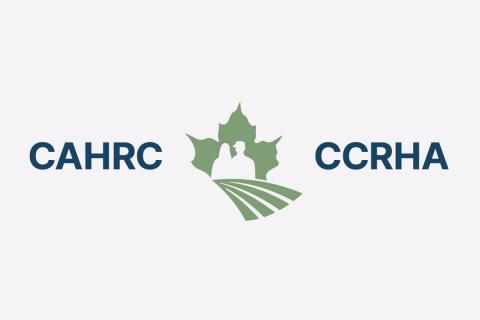As a former 4-Her and native Nova Scotian, Annika Masters knew she wanted to work for the 4-H program in Nova Scotia at some point in her career. So she set out to find a summer job with them after completing her second year of university
“I’ve been in 4-H my entire life,” comments Masters. “I thought it was a great opportunity to be able to give back to a program that truly shaped who I am and that I found very useful. There was a position that was advertised, I needed a summer job and I really enjoyed my time in 4-H, so I jumped at the chance.”
All this was made possible through a student work placement grant 4-H Nova Scotia received from the Canadian Agricultural Human Resource Council (CAHRC).
Growing Opportunities is the CAHRC initiative that helped Annika find a job she loved. Funded by the Government of Canada through Employment and Social Development Canada (ESDC), Growing Opportunities connects employers in need of skilled labour with post-secondary institutions and eager students.
“In agriculture, whether you are a farmer, agriculture-related business or industry organization, finding a reliable supply of labour can be more than challenging. It’s been an on-going problem,” says Jennifer Wright, Executive Director of CAHRC. “That is why we started investigating the potential of involving underrepresented groups, like young Canadians, to fill the labour gap in agriculture-related fields.”
Initiated in 2021, Growing Opportunities delivers the Student Wage Placement Program (SWPP) for employers willing to hire post-secondary students from both agriculture and non-agriculture backgrounds with the aim of growing the agricultural workforce. Eligible students include those registered as a domestic student in a full or part-time program at a recognized Canadian post-secondary institution.
It also supports students who are required to complete a Work Integrated Learning (WIL) component for their academic programs.
Annika Masters was one of five students hired by 4-H NS through CAHRC’s work placement program this year.
Although Masters did not grow up on a farm, she was inspired by her father and grandmother, both of whom were dairy farmers. As a 4-H member, she took several 4-H animal projects, including dairy, goat, rabbit and cavy (guinea pig), along with veterinary sciences.
“I learned a lot about agriculture through my time in 4-H, as well as from spending weekends and holidays helping out on my cousins’ dairy farms. I’ve learned about animal behaviour, how to work with animals, nutrition, grooming, showmanship and the dairy industry in general. It’s also helped me grow a lot of life skills.”
And she’s been able to further develop her knowledge through the work placement program.
“I’m working as a regional summer assistant in the eastern region of the province,” says Masters. It involves a lot of organizational, decision making and people skills.”
